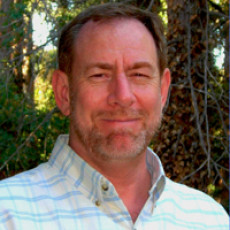CRD’s Daniel Burke Elevated to IEEE Senior Member
January 24, 2013
Daniel Burke, who joined the Computational Research Division last fall as a project manager for the new Computer Architecture Lab, has been elevated to the grade of Senior Member of the IEEE this year. Senior Member is the highest professional grade of the IEEE for which a member may apply and only about 8 percent of IEEE’s 416,000 members have achieved this level.
At the lab, Burke is exploring low-energy approaches for the Department of Energy's Exascale Computing Initiative. Although he only joined the Lab last October, since 2006 Burke has collaborated with John Shalf and other CRD researchers on a number of projects, including RAMP and GreenFlash, which evolved into the Exascale Computing Initiative.
To be eligible for Senior Member status, IEEE members must be engineers, scientists, educators, technical executives, or originators in IEEE-designated fields with at least 10 years experience; have experience reflecting professional maturity; and show significant performance over a period of at least five of their years in professional practice.
About Berkeley Lab
Founded in 1931 on the belief that the biggest scientific challenges are best addressed by teams, Lawrence Berkeley National Laboratory and its scientists have been recognized with 16 Nobel Prizes. Today, Berkeley Lab researchers develop sustainable energy and environmental solutions, create useful new materials, advance the frontiers of computing, and probe the mysteries of life, matter, and the universe. Scientists from around the world rely on the Lab’s facilities for their own discovery science. Berkeley Lab is a multiprogram national laboratory, managed by the University of California for the U.S. Department of Energy’s Office of Science.
DOE’s Office of Science is the single largest supporter of basic research in the physical sciences in the United States, and is working to address some of the most pressing challenges of our time. For more information, please visit energy.gov/science.










